Are you planning building works that will impact a wall standing between you and your neighbour’s land? This shared wall, known as a ‘party wall’ is named so as it exists on the land of two or more owners. It may form part of your building, or it may not.
Both you and your neighbour have rights and obligations when it comes to party walls. There is a specific process that needs to be followed before carrying out any building works.
Party Wall Act 1996
The Party Wall Act 1996 provides the structure for preventing and resolving party wall disputes. This act guarantees those starting party wall works give adjoining owners notice of their intentions, hence a chance to agree or disagree to the proposal.
Appoint a Party Wall Notice Surveyor
At any stage, you or your neighbour may each appoint a party wall surveyor to advise and represent you. Alternatively, you may agree to jointly appoint one surveyor to advise you both. Prior to works commencing, a surveyor will assess your neighbour’s property and issue a schedule of condition. This will ensure that you will be held responsible for any damages that occur to their property.
When is a Party Wall Notice Needed?
As a building owner, whether or not you need to serve your neighbour a party wall notice depends on the type of works you want to undertake on your property. In general, work involving the following will require a party wall notice to be served:
- Building on or at the boundary of your property
- Carrying out work on an existing party wall
- Digging below or near the foundation of their property
- Building a new wall
- Cutting into a party wall
- Making a party wall taller, shorter or deeper
- Removing a chimney from a party wall
- Knocking down and rebuilding a party wall
- Building an extension or basement
How to Serve a Party Wall Notice
Before starting any works, you must serve any adjoining owners a formal party wall notice in writing. This should indicate your intention to carry out works and describe them in detail. Give as much accurate information as possible. This could avoid errors and potentially the necessity of a party wall award.
In general, you should serve this notice at least 2 months before works are due to start, so your neighbour can prepare a response. Although, the exact length of notice required is dependent upon the nature of works intended.
Once in receipt of a party wall notice, your neighbour has 14 days to respond.
Should your neighbour not respond within this time, it is presumed that they oppose the plans and the dispute resolution process will start. Although if 14 days have passed, they will receive a follow up notice in which they have a further 10 days to reply.
All too often a notice runs past its 14 day response period and even beyond the further 10-day period during which your neighbour can appoint a surveyor under the PWA 1996. If still disregarded, you can then instruct a surveyor to act on their behalf. Not ideal as even though the surveyor is impartial, your neighbour is often left feeling unrepresented.
Alternatively, your neighbour could respond accordingly:
Consent to a Party Wall Notice
They might simply give consent for any proposed works to go ahead as planned. Obviously this will be your preferred, and the most straightforward option. They must give their consent that they are allowing work to continue in writing. This is highly likely if your planned works are minor and not expected to affect their property.
Dispute a Party Wall Notice
Your neighbours might refuse permission, which starts a dispute resolution process. If you and your neighbour cannot agree on the works you want completed, party wall surveyors must be appointed and a Party Wall Award agreed before works can commence.
You can suggest a surveyor, but this must be an Agreed Surveyor who will work impartially and independently in the best interests of both parties. It must not be the same surveyor that you are using for your own works.
Should your neighbour not wish to use an Agreed Surveyor there is also the option for them to appoint their own surveyor, whilst you appoint your own. You should note that you are responsible for all fees considering statutory party wall matters, including your neighbour’s surveyor.
Party Wall Award
The Agreed Surveyor or individual surveyors will draw up a legal document called a Party Wall Award. This Party Wall Award will detail: what work should happen, how, and when it will be carried out. They will also peruse plans to ensure that works will not affect your neighbour’s property and what will happen if it is damaged. A schedule of condition will be issued to record the state of your neighbour’s property before work commences. Using this information, both surveyors, or the Agreed Surveyor will produce the party wall award based on the findings.
In the case of a dispute on a suitable party wall award, an impartial third surveyor may resolve the arguments. If your neighbour disagrees with this surveyor’s award, both you and your neighbour have 14 days to appeal to the County Court against it.
Find a PWA Surveyor
Your neighbour should be aware that the PWA 1996 exists to assist, not hinder development. It is there to regulate works, not the whole development scheme. Equally, you should appreciate the irritating side effects of your development such as dust, vibration and noise. Although not regulated under the PWA 1996, such matters do need consideration.
When considering construction works, it is important to gain advice from a surveyor experienced in party wall and PWA 1996. Disputes and litigation can be avoided by professional negotiation. We strongly advise instructing your surveyor early and ahead of development. Lack of technical knowledge may involve a prolonged dispute, substantial increased costs and a last minute redesign.
The word ‘party’ word doesn’t always cement joyful collaborations. Although appointing our party wall surveyors will. Akin to your proposed party wall, they are well placed and stand solid in offering offer crucial consultancy advice.




